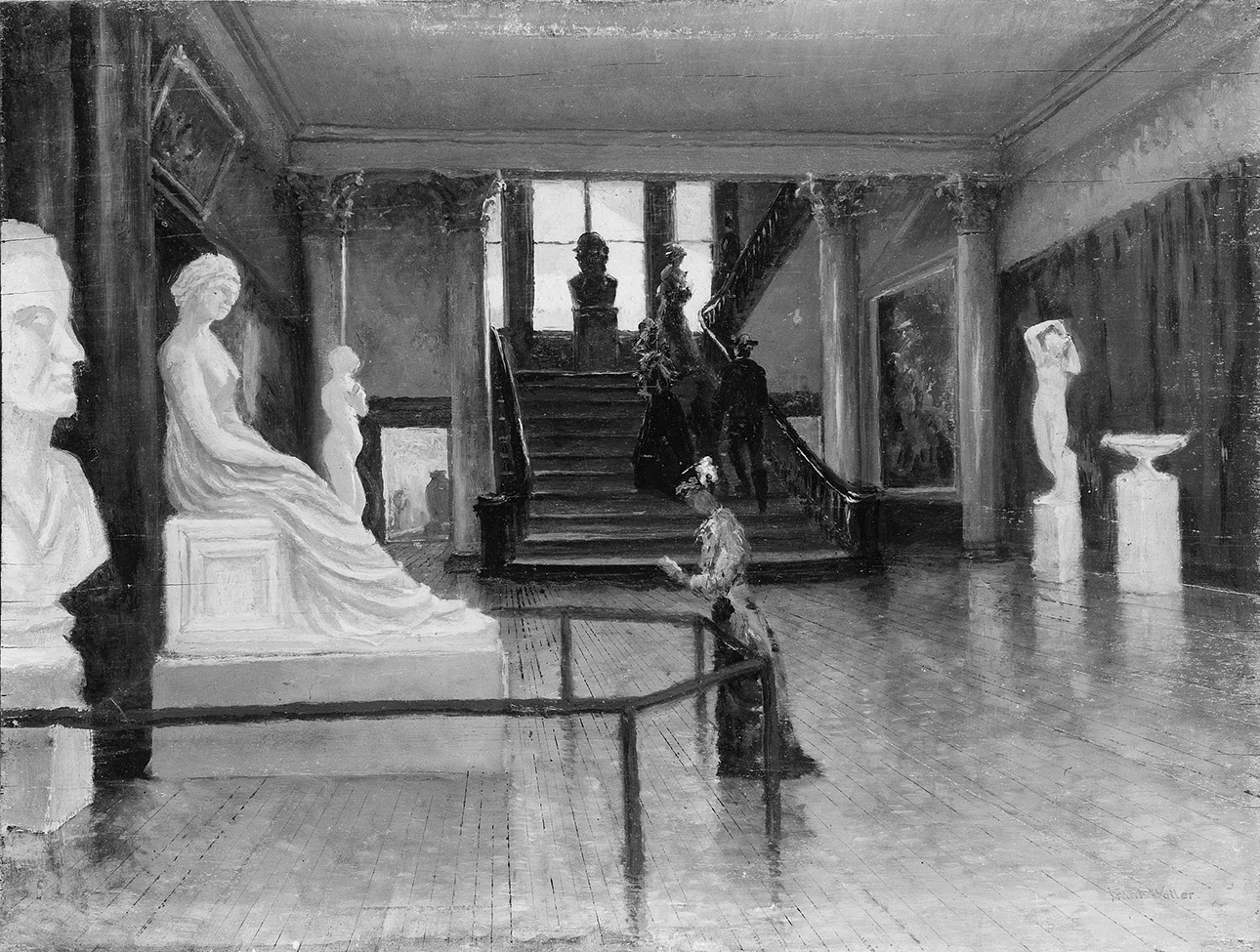
Entrance hall of the Metropolitan Museum of Art when it was located in the Douglas Mansion on West Fourteenth Street, c. 1881. Photograph by Frank Waller. The Metropolitan Museum of Art, Purchase, 1920.
• A photographer sees how war museums around the world present and hide the past, or just try to make it entertaining instead of factual. (BBC)
• A new exhibit examines the legacy of Arthur Mitchell, founder of the Dance Theater of Harlem. (New York Times)
• The Rockefellers reckon with their history and the future of the world regarding fossil fuels and climate change. (New York)
• Ted Conover looks back at the Memphis sanitation workers’ strike that was Martin Luther King Jr.’s focus before his death. (Smithsonian)
• The involved process of trying to find Samuel Clemens in a oeuvre by Mark Twain: “The first task of Sam Clemens’s biographers, in short, should be to sort facts from factoids or truth from truthiness, a process akin to stripping lacquer from a painting to reveal the original pigments or removing carpet to expose the grain in a hardwood floor.” (The Paris Review Daily)
• The Harry Ransom Center purchased Arthur Miller’s papers: “Substantial correspondence in the archive reflects Miller’s association with significant colleagues from the literary and theatrical worlds including Edward Albee, Saul Bellow, Harold Clurman, Norman Mailer, Cynthia Ozick, Harold Pinter, and John Steinbeck. Some relates to Miller’s investigation by the House Un-American Activities Committee. Also included is family correspondence.” (UT News)
• This week in ideas of unknown and questionable origin: “No one knows where the idea to build a giant hedge across the heart of India came from…there was nothing charming about what the British built. It wasn’t meant to protect anything except imperial revenue.” (Atlas Obscura)
• Danny Lyon remembers taking photos of Mississippi in the 1960s. (NYR Daily)